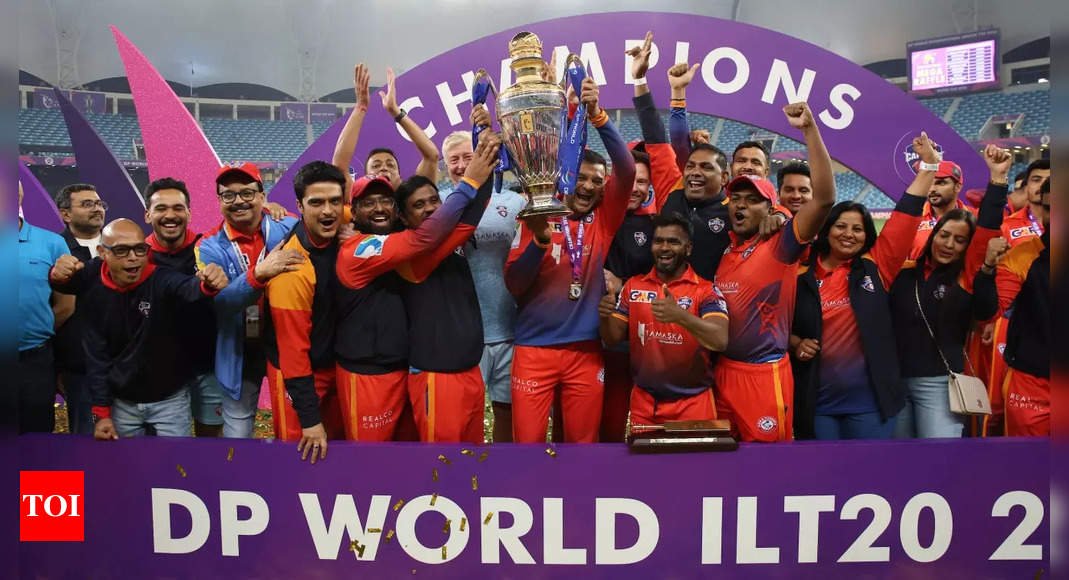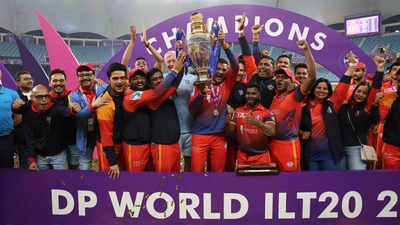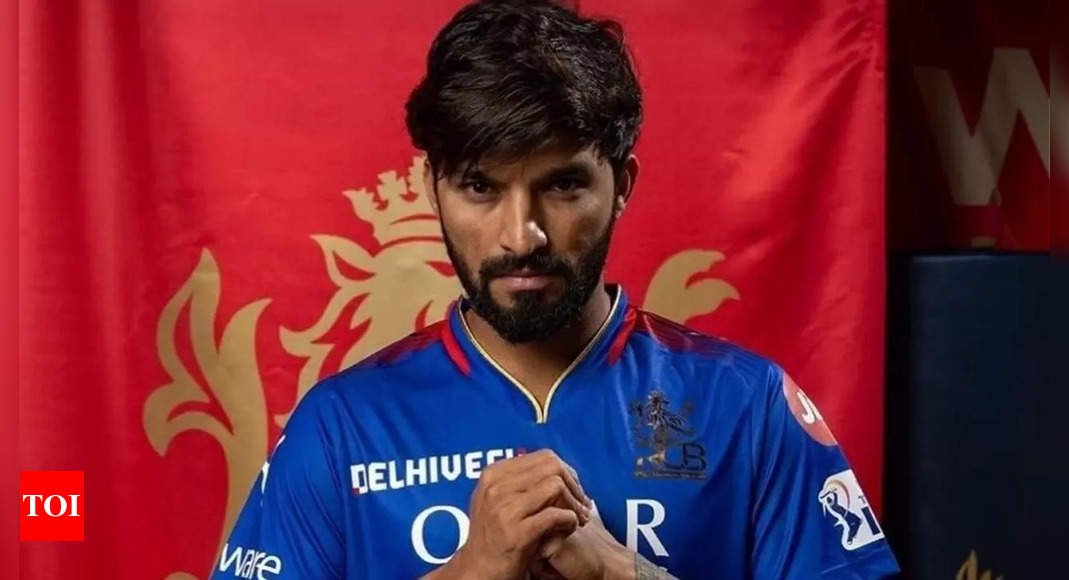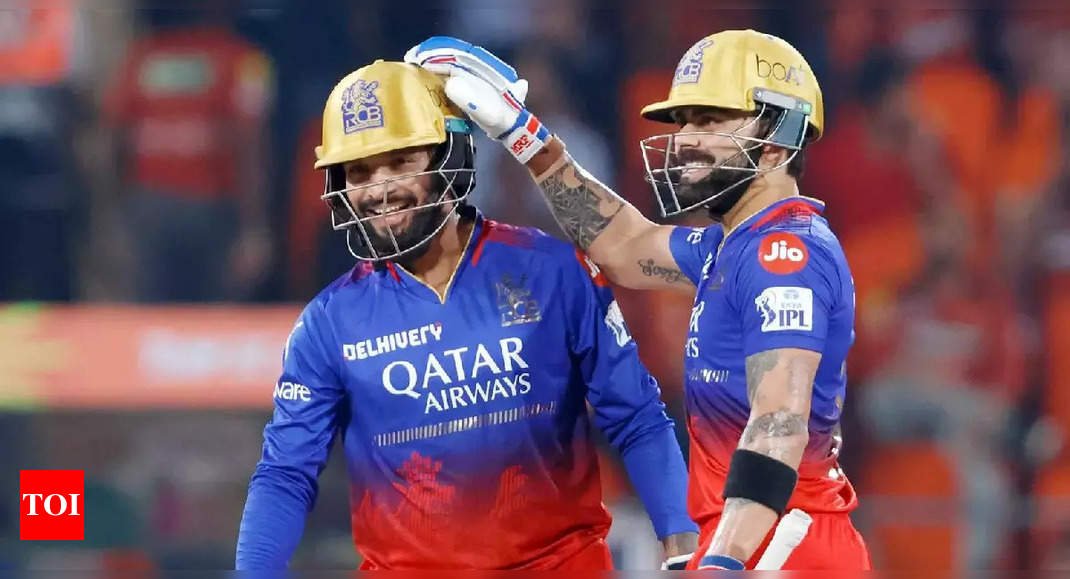“It was nice to get the MVP but it would have been a lot nicer to get our hands on the trophy and not see Nicky P holding it” – Sikandar Raza, on the eve of ILT20 2025.
Before the third edition of the ILT20 began, the captains of each franchise sat down for an interaction with Ian Bishop. Among them was Sikandar Raza, who would lead Dubai Capitals until Sam Billings arrived mid-tournament to take over, and Nicholas Pooran, who had led MI Emirates to the title in 2024.
Go Beyond The Boundary with our YouTube channel. SUBSCRIBE NOW!
Raza had been named the Most Valuable Player in 2024 for his remarkable contributions with both bat and ball. But, as he quipped ahead of ILT20 2025, he’d much rather have had the trophy than the award.
Raza had a chance to make his wish come true, and he did it rather spectacularly. He walked in with 38 needed off 19 balls, and the Capitals five wickets down.
Shortly after, Rovman Powell was out for a blistering 63, and the Capitals needed 24 from the last two overs. All their hopes rested on Raza. That burden didn’t weigh him down though. Instead, it lifted him. Raza reeled off four fours and a six in the next eight balls, showing nerveless calm and scintillating strokeplay as the Capitals galloped to victory.
The Capitals had lost in the Eliminator in 2023, and in the final in 2024. They had come close to winning the title, only for it to elude their grasp. When another chance came, Raza was not going to let go. Victory in the final also meant that the Capitals had beaten Desert Vipers four times in four meetings. Twice in the league stage, then in Qualifier 1, and finally in the title-clash.
Vipers had been the standout team in the league phase, and had answers for everything the other teams threw at them. The only riddle they couldn’t crack was the Capitals. Not that it was easy.
In both playoff games, Vipers put on 189 batting first. Qualifier 1 was won off the last ball of the match. The final looked lost before Raza unleashed his strokes, but it was still a last-over victory.
The two best teams in the tournament played successive thrillers, a fitting finale to an enthralling tournament.
The other teams had their moments, but the glory moments belonged to the two finalists.
The two teams who didn’t qualify, Gulf Giants and Abu Dhabi Knight Riders, had a galaxy of stars but their lack of form showed the vagaries of T20 cricket. They’ll perhaps look back at the tournament and think of some of the minor mistakes they could have avoided, and had a change in results.
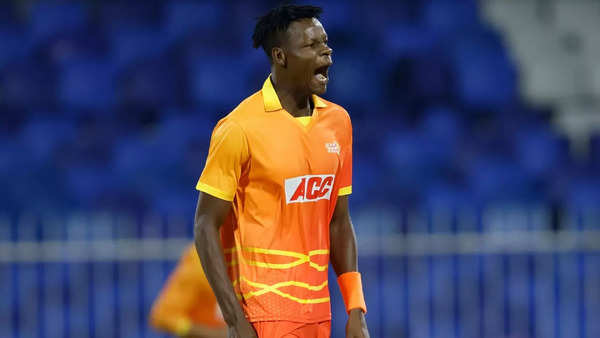
Blessing Muzarabani during the ILT20. (Creimas)
Giants had a standout performer in Blessing Muzarabani, who bowled tough overs, took wickets and kept the run-rate down. In terms of impact, he was among the two best bowlers of this edition.
MI Emirates and Sharjah Warriorz both made the playoffs, and it was significant for both. But more so for Warriorz, who had never made it to the playoffs in the previous two editions. Under a new captain in Tim Southee, they put together some solid performances and enough wins to be in fourth place in the league table. The key game for them was the Eliminator against Emirates. And in that highly-important match, Warriorz found a hero in Tim Seifert, who calmly whacked 40* off 20 balls to take his team through to the second Qualifier.
Although Warriorz couldn’t then get past Vipers, a third-place finish was a significant improvement on earlier seasons.
Emirates will perhaps feel the most what-could-have-been, because they had the league’s best batter in Tom Banton, the best bowler in Farooqi, and arguably the second-best batter too in Nicholas Pooran. Each of them had some standout performances, but what Emirates missed out on is stringing the performances together enough times. They had their chances to finish in the top two and missed out, and they had their chances in the Eliminator and missed out there too.
Which is why, eventually it was the Capitals and Vipers standing on top of the heap. They pulled together as a team, and had players backing up individual brilliance with useful nuggets. They also presented a clash of types, with Capitals being hard-hitting till late in the order and Vipers putting together a gun bowling attack.
Vipers had Hasaranga, captain Lockie Ferguson, Mohammad Amir, Sam Curran and David Payne, who together took 54 wickets. Not that their batting was shabby, with the likes of Hales, Curran, Sherfane Rutherford and Fakhar Zaman providing plenty of fireworks, but the bowling was a world-class unit.
Contrastingly, the Capitals had extreme batting depth, with the likes of Rovman Powell, Dasun Shanaka and Raza manning the lower middle order. The top order had Shai Hope churning out runs, Gulbadin doing his thing, and even David Warner flying in and winning the first game off his own bat.
Received wisdom in T20 cricket has it that batting wins matches while bowling wins tournaments. The Capitals triumph against Vipers challenged that, and turned it on its head.
(Saurabh Somani is a Pondicherry-based freelance cricket writer. In his spare time, he watches the game anyway.)

